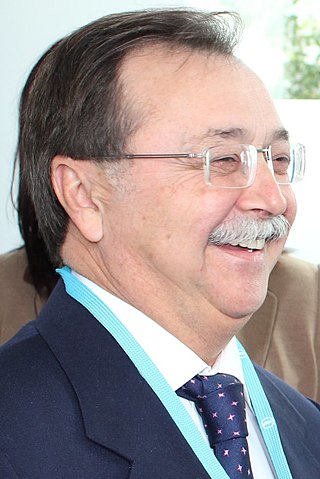Top Qs
Timeline
Chat
Perspective
2019 Ceuta Assembly election
Election in the Spanish autonomous city of Ceuta From Wikipedia, the free encyclopedia
Remove ads
The 2019 Ceuta Assembly election, was held on Sunday, 26 May 2019, to elect the 7th Assembly of the Autonomous City of Ceuta. All 25 seats in the Assembly were up for election. The election was held simultaneously with regional elections in thirteen autonomous communities and local elections all throughout Spain, as well as the 2019 European Parliament election.
Remove ads
Electoral system
The Assembly of Ceuta is the top-tier administrative and governing body of the autonomous city of Ceuta. Voting for the Assembly is on the basis of universal suffrage, which comprises all nationals over eighteen, registered and residing in the municipality of Ceuta and in full enjoyment of their political rights, as well as resident non-national European citizens and those whose country of origin allows Spanish nationals to vote in their own elections by virtue of a treaty.[1][2][3]
The 25 members of the Assembly of Ceuta are elected using the D'Hondt method and a closed list proportional representation, with a threshold of 5 percent of valid votes—which includes blank ballots—being applied. Parties not reaching the threshold are not taken into consideration for seat distribution.[1][2][3]
The Mayor-President is indirectly elected by the plenary assembly. A legal clause requires that mayoral candidates earn the vote of an absolute majority of members, or else the candidate of the most-voted party in the assembly shall be automatically appointed to the post. In case of a tie, a toss-up would determine the appointee.[3]
Remove ads
Parties and candidates
The electoral law allowed for parties and federations registered in the interior ministry, coalitions and groupings of electors to present lists of candidates. Parties and federations intending to form a coalition ahead of an election were required to inform the relevant Electoral Commission within ten days of the election call, whereas groupings of electors needed to secure the signature of at least one percent of the electorate in the constituencies for which they sought election, disallowing electors from signing for more than one list of candidates.[3][1]
Remove ads
Opinion polls
Summarize
Perspective
The table below lists voting intention estimates in reverse chronological order, showing the most recent first and using the dates when the survey fieldwork was done, as opposed to the date of publication. Where the fieldwork dates are unknown, the date of publication is given instead. The highest percentage figure in each polling survey is displayed with its background shaded in the leading party's colour. If a tie ensues, this is applied to the figures with the highest percentages. The "Lead" column on the right shows the percentage-point difference between the parties with the highest percentages in a poll. When available, seat projections determined by the polling organisations are displayed below (or in place of) the percentages in a smaller font; 13 seats were required for an absolute majority in the Assembly of Ceuta.
Remove ads
Results
Remove ads
Aftermath
Notes
- Within Unidas Podemos.
References
Wikiwand - on
Seamless Wikipedia browsing. On steroids.
Remove ads




